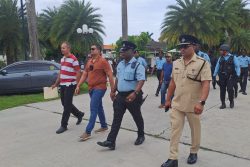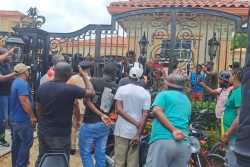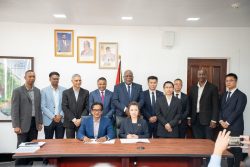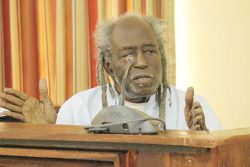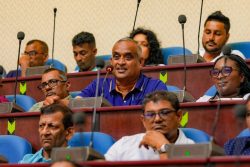(Jamaica Gleaner) The $1-trillion bill to efficiently upgrade Jamaica’s roads requires a paradigm shift in construction and maintenance policy and provision of a credible budget, National Works Agency (NWA) Chief Executive E. G. Hunter has said.
The state agency has been heavily criticised for its maintenance standards and oversight systems, particularly since rainstorms in October and November plundered swathes of its road and bridge infrastructure, tagging the Holness administration with a bill of nearly $8 billion.
Given the scope of its work and the meagre financial resources it is allocated each year, Hunter said that the NWA was being asked to make “blood out of stone” – or to accomplish the impossible.
On Thursday, Hunter made his second appearance in as many weeks before a parliamentary oversight body – this time before the Public Administration and Appropriations Committee of Parliament.
The chief executive told The Gleaner at the end of the meeting that the NWA has, for years, shouldered unrealistic expectations because of political pressure brought by parliamentarians without concomitant resources to achieve the deliverables.
In his presentation, Hunter disclosed that the J$3.2-million budget was a fraction of the annual cost of J$82 million for routine and periodic maintenance.
Fifty-five per cent of roads within its purview are in bad condition, he said.
Hunter said that political influence often meddled in objective prioritisation of infrastructure rehabilitation.
“I am yet to find an MP who will say, ‘Listen, don’t touch my constituency this year. Go do Portland, and then I wait my turn,” he charged.
“Not one single MP supports this method. Instead, the first things the MPs do (when road repairs come up for review) is that they tot up the expenditure. How much in PNP constituency, how much in JLP constituency, and if there doesn’t appear to be equity in the expenditure, then we get crucified,” he told the committee.
Hunter said that taxpayer dollars would go down the drain unless the country dispenses with its piecemeal approach to road construction.
Not Just About Throwing Money
The CEO likened the crisis facing the agency to what prevails with people who live in apartment complexes but pay no maintenance fees yet expect the garbage to be collected regularly, grounds maintained, and electricity and water supply remain connected.
“It’s not just throwing money at the problem, it’s being smart and will involve in relocating some of the infrastructure, including the roads, moving them away from beside the rivers, moving them from beside the sea and putting them instead in locations which are more secure.
“It is human habitation and interaction with the environment that precipitates a lot of the problems. It is our own settlement problem which is causing problems,” said Hunter.
His hardline view diverges from the perspective of Opposition Leader Mark Golding, who said recently that the Government should increase its investment in river training and not force householders in built-up formal communities like flood-hit Weise Road, Bull Bay, from relocating.

